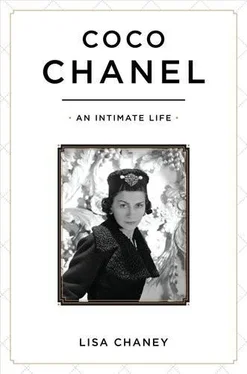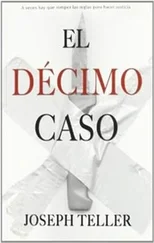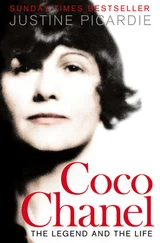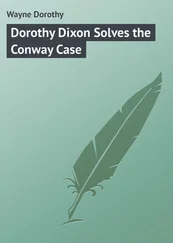In the present day, when many find large assets and great privilege distasteful, Bend’Or is usually portrayed as unrelentingly monstrous and is caricatured by his vast wealth, yachts, houses, affairs and the number of his wives (there would be four). Yet we frequently make the mistake of judging the past by the same standards as our own. L. P. Hartley’s statement in The Go-Between is apt here: “The past is a foreign country; they do things differently there.”
Undoubtedly, the Duke of Westminster had many limitations and faults, but it is difficult to view this man and his strange life with real perspective without taking his times into account. In paying Bend’Or tribute, one of his most distinguished employees wrote of those who worked for him at Eaton Hall:
Everyone enjoyed the distinction of working in one of the greatest of great houses, where everything was of the best and the standards were of the highest. The long hours were repaid by the highest conditions of service and the excitement of the great occasions… Times have changed and much of the traditions of service have changed and become commercialized. While they were still maintained they were, at their best, a dignified and rewarding framework of human relations. 4
This same man insisted that Bend’Or was “uniformly loved and admired by all of those who worked for him.” 5
The duke’s parents had both conducted extramarital relationships but had stuck to the conventions of their day and remained partners in marriage. Although in many ways a Victorian, their son loathed private dishonesty and public hypocrisy and was less prepared to compromise. In his private life, this combination was unfortunate. Bend’Or’s undoubted qualities of decisiveness, courage and leadership, admirably displayed in war, were not qualities he understood how to demonstrate with much efficacy in peacetime. His other great handicap, which has led to his being described, in effect, as a dumb ox, was Bend’Or’s difficulty in explaining himself with much fluency.
Only on occasion was he moved to put his views forward (vehemently) and then, apparently, his comments were germane. With an aristocratic English lineage, wherein reticence about one’s feelings was a prerequisite of acceptance as a gentleman, Bend’Or’s schooling as well as service in the army had compounded what must have begun as shyness and ended as the tendency to express himself inadequately. Depending upon one’s viewpoint, the Duke of Westminster can be seen either as an inflexible, bombastic prude or a flawed man of honor who was unable to negotiate well with his times, especially when they were peaceful. (In this, he resembled somewhat Winston Churchill.)
By the time Bend’Or met Gabrielle, he had become an edgier, more restless man whose temper could flare up without warning. Although someone whose forte was action, rather than lengthy discourse or theorizing, there was, however, more to him than this. Apart from anything else, the caricature descriptions of Bend’Or the monster are demeaning to Gabrielle. Why would she have associated herself with someone who was utterly obnoxious? As a fiercely independent woman, she had great wealth of her own at her disposal. It was nothing by comparison with Westminster’s, but her aspirations were not of that order. She had no need, really, of Westminster’s incredible riches.
Marie Laurencin told the diarist Abbé Mugnier that “Mlle Chanel and Misia Sert are bored women, the latter out of satiety.” Referring to the emptiness of much of Parisian society, the Abbé wrote that Gabrielle was “a queen in a desert.” Was this in part why she allowed herself to be seduced by the Duke of Westminster, a man whose fabulous riches had made him, like her, a kind of exalted outsider?
Gabrielle now joined Bend’Or whenever she was able. He was a tall bear of a man noted for his inability to do anything on a small scale, and although sixty for a weekend at Eaton Hall was not uncommon, Bend’Or increasingly preferred a smaller number of what he called “real people.” Of an obdurate stubbornness, he was both easily bored and easily pleased. He was, really, a simple man. Gabrielle often met him at one of his various country estates, where she showed considerable prowess at hunting, fishing and entertaining the duke’s friends. His Scottish estate, Reay Forest, “a wild tract of eight hundred square miles” in the Highlands, included one of the most famous salmon rivers and some of the best deer-stalking country in Scotland. It was from here, in October 1927, that Winston Churchill wrote to his wife, Clementine:
Here I am in the North Pole! Last night the fishing was unexpectedly vy good… Coco is here in place of Violet [the duchess]. She fishes from morn till night, & in two months has killed 50 salmon. She is vy agreeable — really a gt & strong being fit to rule a man or an Empire. Bennie vy well & I think extremely happy to be mated with an equal — her ability balancing his power. We are only three on the river. 6
Gabrielle also traveled frequently to the Landes, to Bend’Or’s other favored spot, Mimizan, in southwest France, where they hunted wild boar. Both the estate in Scotland and Mimizan were difficult to reach by road, so the duke often used his second huge yacht, the Cutty Sark, built originally as a reserve destroyer, as his mode of travel from Scotland to France. This got him there with great speed. But while Gabrielle’s fearlessness as a sailor was another mark in her favor in Bend’Or’s eyes, in truth, she was bored by the sea. Nonetheless, she was often to be found accompanying him in his restless shuttling from one property to another. Aside from Scotland and the Landes, other houses included a château near Deauville and the town house in London. Gabrielle grew accustomed to the ritual of Westminster train travel, when two Pullman cars and four baggage cars were taken up for the luggage and the dogs.
Winston Churchill enjoyed the boar hunting in the Landes and, earlier in the year, had written to Clementine of his admiration for Gabrielle:
The famous Coco turned up & I took a great fancy to her — a most capable & agreeable woman — much the strongest personality Bennie has yet been up against. She hunted vigorously all day, motored to Paris after dinner & is today engaged in passing and improving dresses on endless streams of mannequins. Altogether 200 models have been settled in almost 3 weeks. Some have been altered ten times. She does it with her own fingers, pinning, cutting, looping, etc. With her — Vera Bate, née Arkwright. Yr Chief of staff? No, one of your lieutenants? 7
Churchill’s wife replied, saying that she enjoyed his description of a hair-raising boar hunt, “but more exciting… is your account of ‘Coco.’ I must say I should like to know her. She must be a genius.”
This “genius” would say of Bend’Or, whom she described as “a last king,” that “the greatest pleasure he gave me was to watch him live.” Several of his friends felt the same. Beneath Bend’Or’s clumsy exterior he was a skillful hunter. Having said that “a man would have to be skillful to hang on to me,” Gabrielle described their years together as “living very lovingly and very amicably.” To her, Bend’Or was “courtesy itself, kindness personified. He… belongs to a generation of well-brought-up men… He is simplicity made man; he has the shyness of kings, of people who are isolated through their circumstances and through their wealth.” 8
This wealth allowed Bend’Or to indulge his fascination with jewels, which he lavished upon Gabrielle at every opportunity. She had already been given some tremendous gems by Dmitri Pavlovich, but with Bend’Or, her collection became quite fabulous. For Gabrielle, Westminster was “elegance itself, he never has anything new; I was obliged to go and buy him some shoes, and he’s been wearing the same jackets for twenty-five years.” Telling how he was the richest man in England, she said, “Nobody knows this, not even him, especially not him.” She said she mentioned this
Читать дальше












